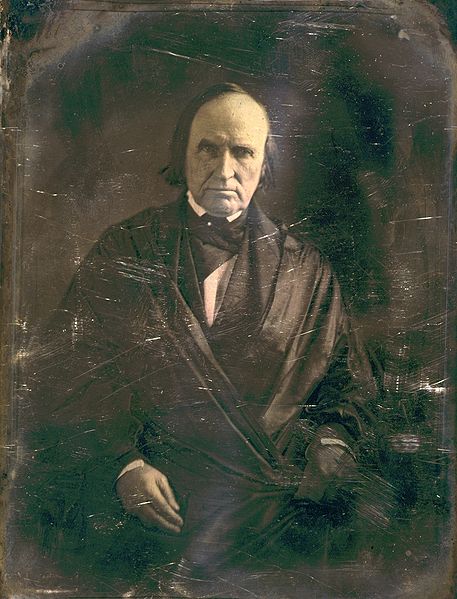 I ended my last post on Groves v. Slaughter with the comment that "[t]he general view of Justice McLean is that he simply lacked the mental horsepower and writing ability to be a first-rate judge." In this vein, I can't resist quoting at least a portion of Professor Currie's wry summary of the judge's efforts and career:
I ended my last post on Groves v. Slaughter with the comment that "[t]he general view of Justice McLean is that he simply lacked the mental horsepower and writing ability to be a first-rate judge." In this vein, I can't resist quoting at least a portion of Professor Currie's wry summary of the judge's efforts and career:Important for his longevity and the vehemence of his opinions, McLean exhibited more bluster than sound reasoning. He distorted commerce clause precedents to further his nationalistic position, let his abolitionist views lead him into inconsistent and unnecessary support for state power in Groves, and added very little in his long Scott dissent. . . . His best opinion came in Prigg . . . [but even there] McLean neglected to make clear whether he was concurring or dissenting.
It's worth keeping this assessment in mind when you run across pre-War histories mentioning McLean as a potential Republican presidential candidate.






No comments:
Post a Comment